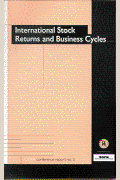Studies in this week’s Hutchins Roundup find that parental leave in Denmark has little cost to small firms and coworkers, inflation risk premium falls at the zero-lower bound and more.
Want to receive the Hutchins Roundup as an email? Sign up here to get it in your inbox every Thursday.
Parental leave in Denmark has little cost to small firms and coworkers
Using data on firms and workers from Denmark from 2001 to 2013, Anne Brenøe from the University of Zurich and coauthors find that parental leave is not costly for small (3 to 30 employees) firms. Women in Denmark take about 9½ months off from work after giving birth. Firms respond by hiring more temporary workers and increasing the hours of existing employees, particularly those in the same occupation as the woman on leave. On net, this leaves the total hours of work and the wage bill unchanged. Firm output, profitability, and survival are also unaffected by parental leave, they find, and coworkers of the woman going on leave experience no significant changes in well-being at work. The authors conclude that, because parental leave is temporary and anticipated, it may be less costly than other types of worker absences.
Inflation risk premium falls at the zero-lower bound
Historically, stock returns have moved inversely with inflation, but, according to François Gourio of the Federal Reserve Bank of Chicago and Phuong Ngo of Cleveland State University, the relationship turned positive in the 2008-2015 period. The authors argue that this shift reflects the binding zero lower bound (ZLB) constraint on short-term nominal interest rates during this period. Their reasoning is as follows: in standard models, positive supply shocks lead to higher output and stock returns, but lower inflation, while positive demand shocks increase output, stock returns, and inflation. In normal times, the central bank offsets demand shocks but not supply shocks, so the relationship between inflation and stock returns is negative. But, at the ZLB, the central bank cannot offset demand shocks, and so the relationship between stock returns and inflation becomes positive. The positive relationship between stock returns and inflation—meaning that inflation is higher in good times—lowers the inflation risk premium, which partly explains why long-term interest rates have been low in recent years. The authors’ model suggests that an upturn in inflation may lead to a significant increase in long-term interest rates because the inflation risk premium might increase.
Brexit uncertainty has negatively affected firms across the globe
Analyzing the language surrounding the discussion of “Brexit” in transcripts from quarterly earnings conference calls for firms headquartered in 71 countries, Tarek Alexander Hassan of Boston University and coauthors find that firms exposed to Brexit uncertainty have reduced hiring and investment and have lost market value, and that these effects extend far beyond British or even European firms. For example, Brexit risk lowered the growth rate of investment and employment at US-based firms by an average of 0.4% and 1.2%, respectively, they find; for Irish firms, which are more exposed to Brexit, these effects were much larger—3.9% and 4.2%. International firms overwhelmingly expect a negative impact from Brexit, reflecting regulatory divergence, reduced labor mobility, increased barriers to trade, and adjustment costs. The Brexit vote has mostly acted as an uncertainty shock, the authors warn, and many of Brexit’s effect have not yet materialized.
 Source: Wall Street Journal
Source: Wall Street Journal
“It is difficult to make firm predictions about the extent to which our two financial systems may drift apart or remain integrated. The contours of the future EU-UK relationship in financial services are still uncertain, and the economic drivers and regulatory choices which could reshape this relationship will probably only be felt over time. The EU will need to balance the benefits of continued integration with the UK financial system against potential risks to financial stability, consumer and investor protection, the level playing field and the integrity of the Single Market. As I have said in the past, this path will not be easy for either side of the Channel, and the risks linked to regulatory divergence and a potential race to the bottom should not be taken lightly,” says Luis de Guindos, Vice-President of the ECB
“[A]ccording to preliminary evidence, a small number of financial hubs appear to be emerging as a result of the relocation – or plans for relocation – of certain activities. Most incoming banks have indicated Germany, Ireland, the Netherlands or France as their new main location in the euro area. […] The persistence of such dynamics, and the emergence of a clearly multi-centric euro area financial system, could raise a number of challenges. In particular, without further progress on banking and capital markets union, a more fragmented financial structure could affect the ability of investors and companies from a country experiencing a negative shock to access investment and funding opportunities in unaffected countries (private risk-sharing). It could also create regulatory and supervisory challenges: domestic capital markets within the EU are currently subject to national rules and supervision; the differences in regimes could further inhibit the integration of markets and perhaps incentivize regulatory arbitrage.”










Commentary
Hutchins Roundup: Parental leave, inflation risk premium, and more
January 9, 2020